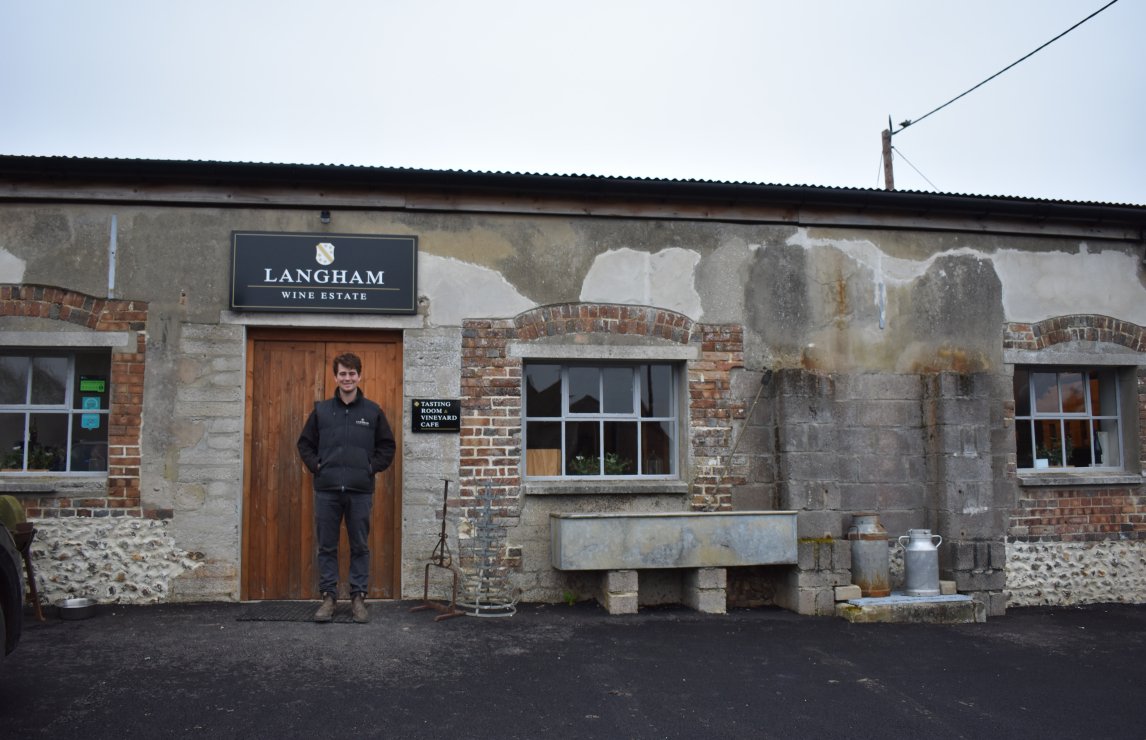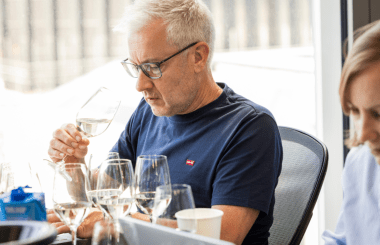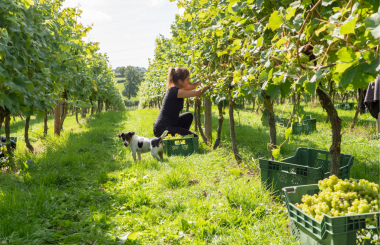Meet the maker: Tommy Grimshaw, Langham Wine Estate
In the chalk hills of Dorset, Langham Wine Estate makes award-winning English sparkling wine. A former dairy farm that has been turned over to viticulture, their holdings comprise 33 acres of Chardonnay, Pinot Noir and Pinot Meunier with a small parcel of early ripening Pinot Noir Precoce.
Langham’s Blanc de Blancs Reserve and 2011 Blanc de Blancs Magnum both scored 90 points in the IWSC 2019, while their Rosé Brut and Classic Cuvée also scored well, taking home bronze awards.
Change is afoot at Langham Wine Estate now, with Tommy Grimshaw taking over as head winemaker. One of the youngest viticulturists in the UK, Grimshaw started working at Sharpham’s Vineyard during his A-levels. Faced with re-sitting his exams, Tommy instead chose to take a role as a harvest cellarhand. His interest in wine has only grown from there, bringing him to Langham.
What makes Langham unique?
The site itself is excellent. It's well sheltered, south-facing and sitting on solid chalk. Our winery is onsite, so we do the whole process from start to finish. It's deeply satisfying to walk into the tasting room and restaurant and see people enjoying the wines we've all worked so hard to produce.
How would you describe your approach to winemaking?
In the winery, we try to be as hands-off as possible. The base wines here are fermented by ambient yeasts, unfined and unfiltered. We use a fair bit of oak, varying in format, age and coopers to build as many layers into the wines as possible. We want the autolysis to add to the complexity of our wines, not to be the complexity. We do use a cultured yeast for our second ferments, but there are some fun things that I would like play around with over the next few years.
What excites you right now in the wine industry?
For me, the whole wine industry is changing for the better. A lot of regions around the world are really starting to focus on how they manage their land and the winemaking process to cause as little impact on the planet as possible.
The increasing amount of young people and women that are shaping and leading the industry is genuinely exciting. I feel it’s an industry that has been dominated by middle-aged men, and I feel like that's changing, which excites me.
How is English wine improving?
From a quality point of view, it's easy to look at global warming and think that is the main contributor to the growth of this industry. However, investment and training are probably more key. We now have a huge amount of capital being invested in English wine and this means that wine producers are using the best equipment. This, in turn, helps to produce better fruit and, in theory, better wines.
Has working with IWSC helped with your wines?
Naturally an award will help to sell your wine. Customers trust a medal as a way of verifying that the wine is worth the money, and a medal from the IWSC certainly gives our wine a lot of merit. The additional support from the IWSC and the passion shown by the team really cements the organisation as a trustworthy and reliable name in the world of wine.



